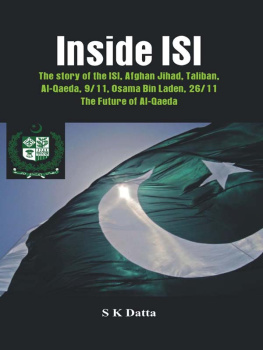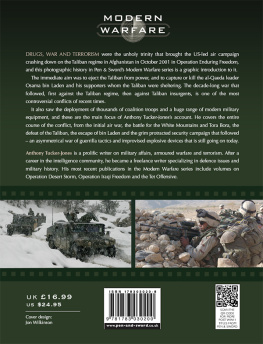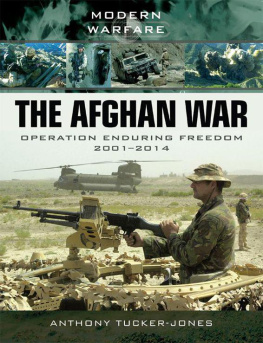102 DAYS OF WAR
Related Titles from Potomac Books
After the Taliban: Nation-Building in Afghanistan
James F. Dobbins
The Other War: Winning and Losing in Afghanistan
Ronald E. Neumann
How We Missed the Story: Osama bin Laden, the Taliban, and the Hijacking of Afghanistan
Roy Gutman
The Valleys Edge: A Year with the Pashtuns
in the Heartland of the Taliban
Daniel R. Green
Human Intelligence, Counterterrorism, and
National Leadership: A Practical Guide
Gary Berntsen
Through Our Enemies Eyes: Osama bin Laden,
Radical Islam, and the Future of America
Michael Scheuer
Imperial Hubris: Why the West Is Losing the War on Terror
Michael Scheuer
Overcoming the Bush Legacy in Iraq and Afghanistan
Deepak Tripathi
Breeding Ground: Afghanistan and the
Origins of Islamist Terrorism
Deepak Tripathi
Simple Gestures: A Cultural Journey into the Middle East
Andrea B. Rugh
102 DAYS OF WAR
HOW OSAMA BIN LADEN, AL QAEDA & THE TALIBAN SURVIVED 2001
Yaniv Barzilai
Foreword by BRUCE RIEDEL

2013 by Yaniv Barzilai
All rights reserved
Potomac Books is an imprint of the University of Nebraska Press
Map 3, The Horse Soldiers Ride to Mazar-i-Sharif, October 19November 10, 2001, reprinted by permission of International Creative Management; copyright Doug Stanton, Horse Soldiers: The Extraordinary Story of a Band of U.S. Soldiers Who Rode to Victory in Afghanistan (New York: Scribner, 2009).
Map 6, Map Carried by Dalton Fury, reprinted by permission of Dalton Fury; copyright Dalton Fury, Kill Bin Laden: A Delta Force Commanders Account of the Hunt for the Worlds Most Wanted Man (New York: St. Martins, 2008).
All statements of fact, opinion, or analysis expressed are those of the author and do not reflect the official positions or views of any U.S. Government agency. Nothing in the contents should be construed as asserting or implying U.S. Government authentication of information or endorsement of the authors views. This material has been reviewed by the U.S. Government to prevent the disclosure of classified information.
Library of Congress Cataloging-in-Publication Data
Barzilai, Yaniv
102 days of war : how Osama bin Laden, al Qaeda & the Taliban survived 2001 / Yaniv Barzilai : foreword by Bruce Riedel.1st edition.
p. cm.
Includes bibliographical references and index.
ISBN 978-1-61234-533-8 (hbk. : alk. paper)
ISBN 978-1-61234-534-5 (electronic)
1. Operation Enduring Freedom, 20012. Taliban. 3. Bin Laden, Osama, 19572011. 4. Tora Bora, Battle of, Afghanistan, 2001. 5. War on Terrorism, 20012009. 6. National securityUnited StatesDecision making. 7. Command of troopsCase studies. 8. AfghanistanHistory, Military21st century. 9. United StatesHistory, Military21st century. I. Title.
DS371.4.B38 2013
958.1047dc23
2012047589
Printed in the United States of America on acid-free paper that meets the American National Standards Institute Z39-48 Standard.
Potomac Books
22841 Quicksilver Drive
Dulles, Virginia 20166
First Edition
10 9 8 7 6 5 4 3 2 1
To those who serve,
and to the people of Afghanistan
whose lives have been destroyed by
three decades of war
CONTENTS
MAPS
AUTHORS NOTE
102 Days of War went through an exhaustive eleven-month pre-publication review by the Department of State, Department of Defense, Central Intelligence Agency, and White House National Security Staff in order to prevent the disclosure of classified information. As the chapter on sources and methodology describes, all information for this book was derived from open sources or on-the-record interviews.
Nevertheless, seven thematic features were deemed classified and therefore have been removed from the book. None of the removed information was critical to the narrative; indeed, most of the redacted material concerns mundane information readily available in the public domain. For example, the Defense Department redacted unit names from the U.S. Special Operations community that, while technically classified, have been known publicly for years. These include the Navy SEAL team that conducted the raid on the bin Laden compound in Abbottabad and the Army Special Operations commando unit of which Dalton Fury, the author of Kill Bin Laden: A Delta Force Commanders Account of the Hunt for the Worlds Most Wanted Man, was a member.
Managing the U.S. governments pre-publication review proved to be a tremendous challenge. Initially, the Central Intelligence Agency and Defense Department redacted information in nearly one hundred places. The CIAs Publication Review Board issued dozens of redactions but withdrew practically all of its objections upon considering an appeal. The Defense Department issued fifty-eight redactions on thirty-five pages to protect five thematic features from disclosure and ultimately upheld all redactions after a lengthy appeals process. These five pieces of information can be found in speeches from defense secretaries during their time in office, in the memoirs of four-star generals, on the Defense Department website, in official U.S. military histories, or in a copy of my undergraduate honors thesis available at the University of North Carolinas Wilson library, but in accordance with the Defense Departments directive you will not find them in this book. I have chosen to use alternative language in three of the five instances and have deleted the other two in their entirety in order to minimize damage to the narrative while complying with the Defense Departments decision.
In the end, the pre-publication review delayed the release of 102 Days of War by eight months and threatened to fundamentally distort the narrative. As an American diplomat, I strongly believe in the obligation to protect all classified information. But at the same time I believe that rigorous historical scholarship is a universal good that can inform leaders about difficult decisions and help them avoid the mistakes of the past. In that regard, the U.S. government also has a keen interest in encouraging its employees to read and write about history. And who better to do so than the military officers, defense officials, intelligence professionals, and diplomats who are on the front lines of Americas foreign policy and national security every day? Of course, sensitive and classified topics must be vigorously safeguarded, but the U.S. government needs to strike a better balance between protecting information and encouraging scholarly activities in the public domain. The pre-publication review process remains too arbitrary, lengthy, and disjointed to allow most government professionals to engage in scholarly activities that benefit the national security community and the broader public.
FOREWORD
On September 11, 2001, I was in the White House Situation Room when the first news of the attack on the World Trade Center was received. As special assistant to the president and senior director for Near East and North African affairs, I would be a firsthand witness to the attack on our country and the counterattack in Afghanistan ordered by President George W. Bush. I have had the privilege to serve four presidents on the staff of the National Security Council over almost twenty years, but no moments were as dramatic and important as that fall day and the hundred days that followed.
The White House and Washington felt under siege during those days. No one knew whether another devastating attack was coming. For a time it appeared our foreign enemy was already sending deadly anthrax-filled letter bombs to Washington, and only later did it become clear the culprit was a deranged American. Threats of new attacks flooded the intelligence community. While the country rallied behind President Bush, it was anxious and frightened.
Next page









